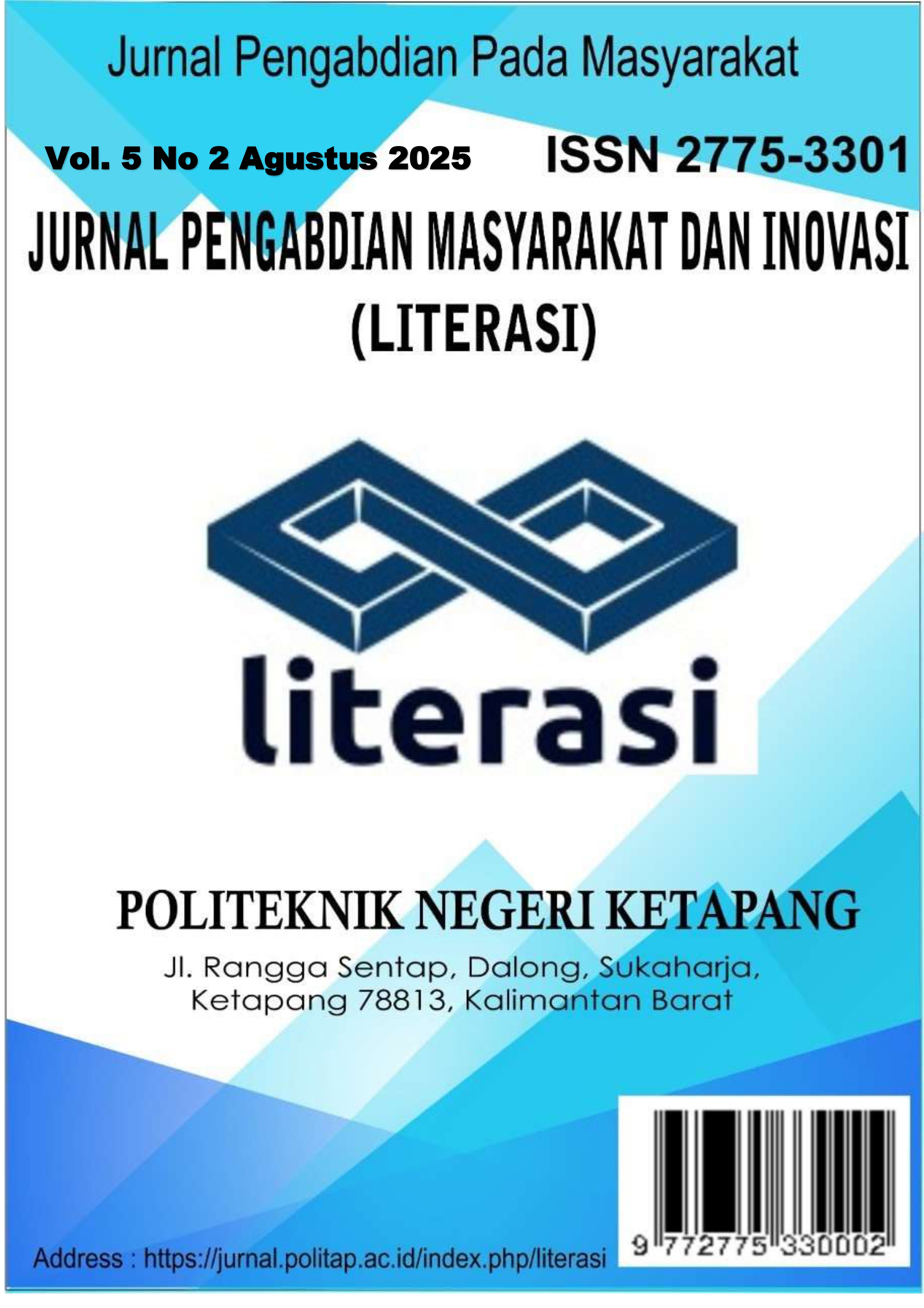Community Economic Empowerment in Digital-Based Zakat Management
 https://doi.org/10.58466/literasi.v5i2.1807
https://doi.org/10.58466/literasi.v5i2.1807
Keywords:
Economic empowerment, zakat management, digitalAbstract
The sophistication of technology that facilitates all transactions does not make people aware of the zakat that they must issue. Even though it has been written in the Quran and the Law of the Republic of Indonesia, it does not make people who have met the requirements of zakat mandatory to just issue zakat. In addition, the public's ignorance about the zakat application that makes it easier for them, not all people know it. Like the people in Glonggong Village, Madiun Regency. This attracts academics to socialize about digital-based zakat management in the region. This socialization activity was carried out by inviting PKK women. These mothers are one of the actors who take part in financial management in the household. The activity was carried out by lecture and discussion method. But it is possible to receive discussions about the management of zakat outside of socialization activities on that day. The lecture method was carried out in the Hall of the Gronggong Village Office. This activity was attended by 25 women of the Glinggong Village PKK. The results of the implementation of the activity showed the high enthusiasm of the socialization participants. This is shown by the large number of participants who asked questions. This public enthusiasm is expected to be followed up by paying zakat digitally to make it easier for the community, the committee, and its transparency.
References
Batubara, S., & Yusditara, W. (2023). Pengaruh Sumber Kompetensi Sumber Daya Manusia Terhadap Kinerja Pegawai Pada Dinas Perumahan Rakyat Dan Kawasan Pemukiman Kota Padangsidimpuan. Student Scientific Creativity Journal (SSCJ), 1(2), 191–199. https://doi.org/https://doi.org/10.55606/sscj-amik.v1i2.1168
Farhah, A. (2024). Analisis Praktik Pembayaran Zakat Secara Online Dengan Metode Bayar Kemudian Ditinjau Dari Hukum Islam (Study Kasus Aplikasi kredivo) [Universitas Islam Negeri Salatiga]. http://perpus.iainsalatiga.ac.id/lemari/fg/free/pdf/?file=http://perpus.iainsalatiga.ac.id/g/pdf/public/index.php/?pdf=22890/1/AINUN%20FARHAH%202
Furqon, A. (2015). Manajemen Zakat. CV Karya Abadi Jaya. https://eprints.walisongo.ac.id/9776/1/Buku%20Manajemen%20Zakat.pdf
Hafriza, A. H., Firdaus MH, & Chuzairi, A. (2018). Manajemen Zakat Sebagai Penyeimbang Perekonomian Umat. Manajemen Zakat Perada, 1(1), 45–58. https://doi.org/https://doi.org/10.35961/perada.v1i1.6
Harahap, A. H., Lubis, D. S., & Zein, A. S. (2022). Pengaruh Zakat Terhadap Pertumbuhan Ekonomi Dengan Pengentasan Kemiskinan Sebagai Variabel Moderating Di Provinsi Sumatera Utara. PROFJES: Profetik Jurnal Ekonomi Syariah, 1(1), 1–16. https://doi.org/http://dx.doi.org/10.24952/profjes.v1i1.5711
Mauludin, M. R., & Herianingrum, S. (2022). Pengaruh Digital Zakat Terhadap Penghimpunan Zakat Dan Kinerja Lembaga Amil Zakat. Jurnal Ekonomi Syariah Teori Dan Terapan, 9(1), 47–58. https://doi.org/10.20473/vol9iss20221pp47-58
Nawaf, S., & Sari, R. L. (2023). Faktor Preferensi Dan Minat Masyarakat Terhadap Transformasi Digital Pengelolaan Zakat Dalam Membayar Zakat Melalui Digital Fundrising. Print) JASIE-Journal of Aswaja and Islamic Economics, 02(01), 70–80. https://doi.org/10.3194/jse.v1i1.6877
Presiden Republik Indonesia. (2011). Undang-Undang Republik Indonesia Nomor 23 Tahun 2011 Tentang Pengelolaan Zakat.








